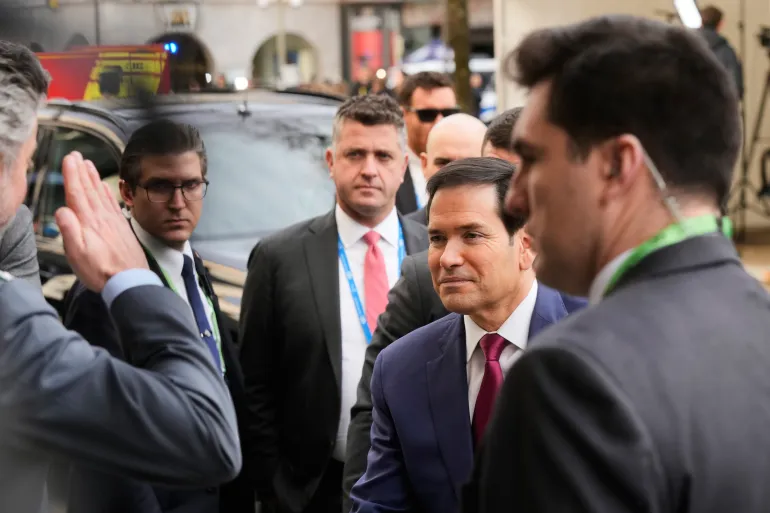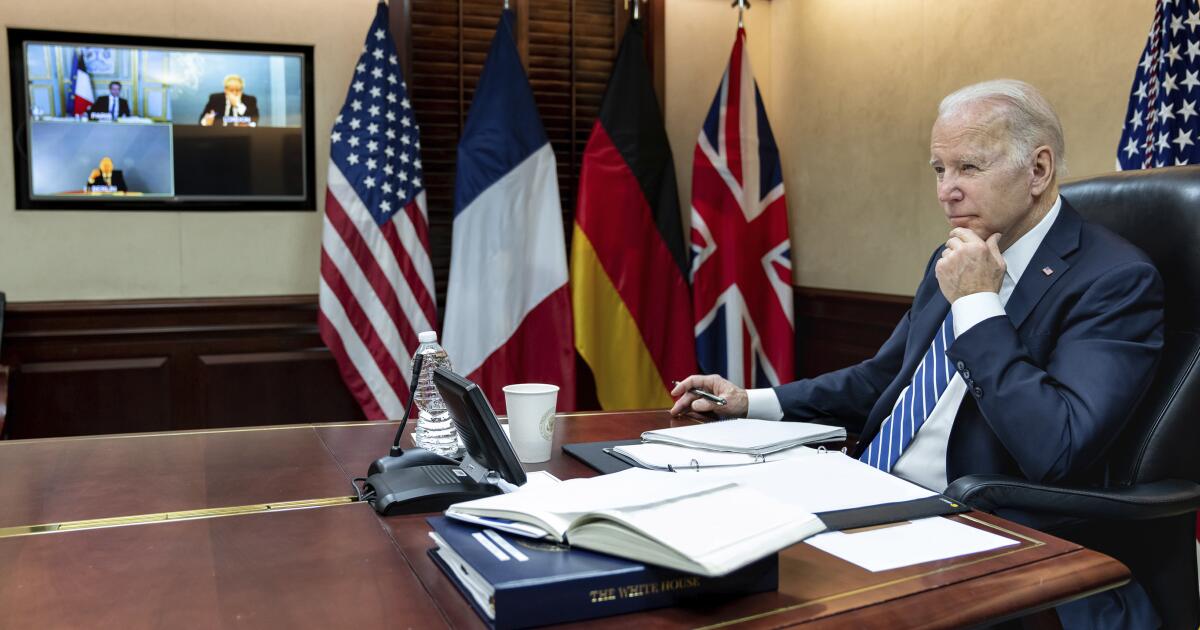This country has the lowest rainfall in the world
PARTS of the UK have seen rain every day of 2026 so far.
But there is a popular country in Africa where you can find sunshine as it has the least amount of rainfall in the world.
Egypt is constantly ranked the country with the lowest average annual rainfall in the world.
In one year, it only gets about 0.7 inches of rain – in comparison, the UK sees on average 47 inches.
This week, while the UK shivers in freezing temperatures and possible snow, Egypt is basking in highs of 30C.
The good news for Brits is that Egypt is incredibly accessible with the flight time being as little as five hours – and there are very cheap holiday offers throughout the year.
The most popular resort towns for Brits are scattered along the Red Sea – these are Sharm El Sheikh, Hurghada, El Gouna, and Marsa Alam.
You can pick the destination depending on what kind of break you’re after.
Sharm El Sheikh, on the southern tip of Egypt’s Sinai Peninsula, is a premier Red Sea resort city with world-class diving and snorkelling thanks to its stunning coral reefs.
Hurghada is also a Red Sea city and is known for having incredible beaches along with great nightlife in Sakalla.
Just up the coast from Hurghada is El Gouna – a secure and gated resort town with high-end hotels, golf courses and marinas.
Meanwhile, Marsa Alam is further south – its U-shaped Abu Dabab Bay is known for its sea turtles and sea cows.
You can spend 10 nights at in Giza for as little as £249 each with loveholidays.
The hotel has spacious bedrooms – some even have bathtubs in the rooms.
The rooftop is the perfect place to gaze at the ancient pyramids, and guests can hire out BBQ equipment for some outdoor cooking.
The price is room only and includes flights from London Stansted.
Staying in Giza, a city on the west bank of the Nile is the perfect stop for anyone wanting to explore Egypt’s history.
It is home to the last remaining Wonder of the Ancient World—the Great Pyramid of Giza and the Sphinx.
Over in Hurghada, you can stay at the 4-star Elysees Dream Beach Hotel which has its own beach, and lots of children’s facilities.
A 10 night stay at Elysees Dream Beach Hotel (starting on February 26) starts from £339pp this includes breakfast – and flights from London Stansted.
Hurghada is the perfect spot for a ‘fly and flop’ break – and February sees more mild temperatures as in peak summer season it can get as hot as 38C.
For a different kind of holiday, why not check out an Egyptian river cruise?
TUI offers package cruises from £1459pp with the Legends of the Nile.
This package is across seven nights, it’s all inclusive with a superior cabin which comes with air conditioning and shower as well as other room amenities.
Guests can explore spots like Aswan, Edfu and Kom Ombo seeing ancient cities and ruins.
One Travel Writer hopped onboard a TUI river cruise when it first launched.
She said: “I got to explore the ancient lands of Egypt in possibly the best way a tourist can — a cruise along the River Nile on board Al Horeya, TUI’s first river cruise ship to sail outside of the European waterways.
“Luxor was the first stop on my seven-night bucket list adventure.
“And I was desperate to explore the Valley Of The Kings where some of Egypt’s most illustrious — and notorious — Pharaohs are buried.
“After a busy day of exploring this fascinating city on the Nile’s east bank, the double bed in my Superior French Balcony Cabin seemed all too inviting.
“From the first night, the Egyptian rosé wine Shahrazade became my tipple of choice – luckily, stays aboard the TUI Al Horeya are all-inclusive which meant I could swig back as many wines as I fancied.”
For more on Egypt, here’s the perfect destination for families seeking adventure from scaling pyramids to snorkelling and desert safari.
Plus, Jet2 is restarting flights to one much-loved winter sun destination for the first time in 16 years.
The greedy hordes of Black Friday are now plundering Thanksgiving
Admittedly, I am a guy who generally dreads the thought of plodding through a shopping mall on any day of the year, but to me the encroachment of Black Friday into Thanksgiving evening seems not only insane but also disturbingly unpatriotic.
It was bad enough when it became the norm for people to show up in the middle of the night in order to be near the front of the line when store doors swung open early on the morn after Thanksgiving. Every time I heard about the herd of shoppers being culled as someone got trampled or sent to the hospital after a fight over a Tickle Me Elmo, I felt justified in my smugness and disdain of this retail frenzy. If that is how the rabble wanted to spend their time and money, so be it. The manic rush to save a hundred bucks on a 50-inch flat-screen TV or finish Christmas shopping by 9 a.m. on Black Friday could go on without me.
Over the years, though, retailers have pushed the starting time for this mad dash earlier and earlier until now it is bumping up against the slicing of the pumpkin pie at the Thanksgiving dinner table. This does not seem right.
PHOTOS: Top of the Ticket cartoons
I pity the poor retail workers who have to leave home and hearth and turkey dinner on the most venerable national holiday of the year. Instead of giving thanks for the opportunity to be confronted by a greedy horde of bargain hunters, I suspect most of those workers are cursing the store owners who decided to ruin the day with their own lust for a dollar. I think it is safe to assume the guys who own Target or Best Buy or the other big retailers will not be manning the cash registers. No, they will be sharing a leisurely Thanksgiving repast with their heirs in the peace and safety of their gated communities.
In 2013, it will be exactly 150 years since Abraham Lincoln set aside the fourth Thursday in November as a national day of “Thanksgiving and Praise to our beneficent Father who dwelleth in the Heavens.” Obviously, traditions shift over time, but let us hope that by next year those who put making money and spending money above all other values will not have totally desecrated what was once an all-American day like no other.
For anyone who feels as disgusted as I am with the plundering of Thanksgiving, go to Change.org and sign the petition urging Target to stop being the Grinch who stole Thanksgiving from employees. Maybe if one retailer is shamed into doing business more thoughtfully, others can be, as well.
How Lakers star LeBron James has maintained peak performance
Slowly, LeBron James put on a pair of ice bath toe booties and dipped his left foot and then his right foot into a bucket that had been prepared for him following a Lakers game at Crypto.com Arena. His longtime personal trainer and athletic performance coach, Mike Mancias, next wrapped both of James’ knees and his back in ice.
James closed his eyes for a few seconds and leaned back in his chair as the media gathered around him for his postgame interview.
This was just another step James has taken to care for his body, a step that shows the lengths he takes in the maintenance of his 6-foot-9 frame that has helped him have an illustrious 23-year career, longer than any player before him.
“Obviously I didn’t know it would be 23 years. I didn’t know that, but I know I didn’t want to have no six- or seven-year career. I can’t become legendary in six or seven years,” James told The Times. “I always had a mission. When I knew I could play this game at a high level, like, going to Chicago and playing with MJ [Michael Jordan] and all those guys when I was a sophomore [in high school]. And then when I went up to Cleveland and played against the Cavs when I was a junior and I was like, ‘Oh … I belong. I belong.’ I knew I still had to learn and I still had to continue to get my body right, continue to learn the game and nuances.
“But I was playing against NBA guys for a long time and I was like, ‘If I get the opportunity to crack the league, if I get the opportunity to showcase what I’m able to do, the only thing that can stop me is if I don’t take care of my body. The only thing that can stop me from being the greatest or one of the greatest to ever play this game is if I do not take care of myself.’ I did take care of my body. That’s it.”
James’ dedication to self care has become legendary in the sporting world. He is known to invest moire than $1.5 million annually for a comprehensive approach to keeping his body fine-tuned.
James considers himself a biohacker: someone who uses science and technology to make their body function better and more efficiently.
He talked about using Normatec leg compression boots, hyperbaric chambers to restore oxygen, cryotherapy, red-light therapy and other cutting-edge technologies to maintain elite performances and longevity at the age of 41.
He talked about prioritizing sleep and nutrition, avoiding artificial sugars and fried foods.
When he missed the first 14 games this season because of sciatica, James cut back on drinking wine, one of his passions, in order to get his body back to full health.
“Obviously it’s gotten even more detailed as me and Mike have built a program,” James said. “It’s been 22 years of our program.”

LeBron James jokes with trainer Mike Mancias while sitting out a game with the Cavaliers in 2010 to rest for playoffs.
(Mark Duncan / Associated Press)
It has worked for James to the highest order, as he has become the leading scorer in NBA history with 42,975 points.
Though his streak of being voted as a starter to the All-Star team was snapped at 21 years in a row, James still extended his NBA record to 22 selections when the coaches voted him in as a reserve for the tournament that will be played Sunday at Intuit Dome.
Over his career, James said, he’s received plenty of offers to try new ways to do his physical therapy. For the most part, he has said no.
“It’s all type of … that is presented to you,” James said, smiling. “[People] are always trying to get you to do s—. But once we got the connection, it wasn’t really many people that we allowed to come and be in what we do. We had a couple of guys obviously throughout the process that helped along the way. But, nah, we knew what we wanted to do.”
When James was growing up in Akron, Ohio, and it became obvious he was athletic, he said his uncle, Curt, encouraged him to start taking care of his body immediately. His mother, Gloria, advised him to listen.
“I used to stretch before I went to bed and when I woke up, when I was like 10 or 11 years old,” James said. “My uncle Curt, my mom’s younger brother, used to make me do 100 calf raises a day and he used to make me do 50 pushups and 50 situps a day.”
James shook his head and laughed recalling those moments.

LeBron James glides past Kings forward DeMar DeRozan for a reverse dunk during a game in December.
(Eric Thayer / Los Angeles Times)
“He told me I had to get my calves stronger if I wanted to be great,” James said, smiling. “I never knew what that meant, whatever. But yeah, my uncle used to tell me to do that, and then a good friend of mine used to always tell me to stretch before I got in the bed and after I got out of the bed when I woke up the next morning. I don’t know, man. I’ve been doing this for a long time.”
At no time during all this did James know what that advice would mean for his future.
“No, but I had people that I trusted,” James said. “I was icing after every game my rookie year. I was 18 years old. I was icing after games when I was a high school senior, a high school junior. Like, I was lifting [weights] my senior year.”
James told a story about playing in an AAU tournament with Kendrick Perkins when he was 14 and how some players were sitting in the stands eating fast food.
“They were eating McDonald’s,” James said, smiling, “and I was eating fruits.”
Jason Kidd, the Hall of Fame point guard who’s now coach of the Dallas Mavericks, was an assistant with the Lakers when James led them to the 2020 championship, and the two were teammates on the 2008 USA Olympic team that won the gold medal in Beijing.
Kidd has watched how James is averaging 22 points on 50.2% shooting, 7.1 assists and 5.8 rebounds this season and can’t help but marvel at how he continues to be a highly effective player with so many miles on his body.
“He’s had some injuries, but he’s taken care of his body, he’s always prepared himself for the marathon,” Kidd said. “But I think it’s the mental side. I think that’s the hardest part is to wake up and say, ‘Do I need to go play against a 20-year-old or a 19-year-old?’ He’s won championships, he’s been MVP, he’s been the face of the league. He’s a billion-dollar company.
“So, it’s the mental side. Understanding that he loves competition and he loves the game of basketball. So I think for him to do it at 41 is incredible.”
When the Lakers faced Kidd’s Mavericks on Thursday night, James was back in the lab early getting his body ready about six hours before tipoff.

LeBron James talks with assistant coach Jason Kidd during a 2020 playoff game.
(Associated Press)
It didn’t matter that it was the last game before the weeklong All-Star break. In James’ eyes, if you take care of your body, it will take care of you.
“I woke up this morning, went straight downstairs, got a stretch, did a little activation, like a little small lil’ lift” of weights, James said after the game. “Then I iced after that. Then I used the Normatec to pump my legs for an hour. Then I took a nap in the hyperbaric chamber for an hour and a half. Then I got in the cold tub, again, before I came here. So, I started my process here when I got here at 1:15 and prepared for a 7 o’clock game. It’s just around the clock.”
And as it turned out, all his work led to yet another record for James.
His triple-double of 28 points, 12 assists and 10 rebounds made him the oldest player to accomplish the feat, pushing him past Karl Malone, who was 40 when he did it in November 2003.
And now comes another record with the All-Star Game.
Marco Rubio wants to build a ‘new Western century’. Will Europe join? | Politics News
Speaking at the annual Munich Security Conference on Saturday, United States Secretary of State Marco Rubio urged European countries to collaborate with the US to build a “new Western century”, describing US-Europe ties as “civilisational”.
“We are part of one civilisation – Western civilisation,” he said.
Recommended Stories
list of 4 itemsend of list
His rallying speech comes after more than a year of President Donald Trump’s rhetoric about mass immigration in Europe and his administration’s latest National Security Strategy, which warns of “civilisational erasure” in Europe.
Last year, US Vice President JD Vance also lambasted European “liberal values” in his first address at the security conference.
As European leaders grapple with the rise of far-right political parties, how will they respond to this new demand from the US, and what does it mean for the future of transatlantic relations?

What did Rubio say?
The top US diplomat focused on several key areas he views as imperative for Europe to address, which included ending “liberalist” policies the Trump administration views as responsible for Europe’s “post-war decline”, creating new supply chains to reduce reliance on countries such as China, and ending mass migration, which he said is leading to the erasure of Western “civilisation”.
“The work of this new alliance,” Rubio said, “should not be focused just on military cooperation and reclaiming the industries of the past. It should also be focused on, together, advancing our mutual interests and new frontiers, unshackling our ingenuity, our creativity, and the dynamic spirit to build a new Western century.”
Liberalism and mass migration
Rubio argued that the “euphoria” of the Western victory in the Cold War had led to a “dangerous delusion that we had entered ‘the end of history’”, where every nation would be a liberal democracy and “live in a world without borders, where everyone became a citizen of the world”.
He used this as a plank to lash out against opening “doors to an unprecedented wave of mass migration that threatens the cohesion of our societies, the continuity of our culture, and the future of our people”.
“Mass migration is not, was not, isn’t some fringe concern of little consequence. It was and continues to be a crisis which is transforming and destabilising societies all across the West,” he said.
Taking aim at liberalist policies, he added that, to “appease a climate cult, we have imposed energy policies on ourselves that are impoverishing our people”.
New supply chains
Rubio said the US and its allies should bring more industry and jobs back home, not just to build weapons but to lead in new, high‑tech fields.
He added that the West should control key minerals and supply chains, invest in space travel and artificial intelligence, and work together to win markets in the Global South.
In particular, he said, is the need for a “Western supply chain for critical minerals not vulnerable to extortion from other powers”.
Earlier this month, Trump hosted ministers from dozens of countries for a critical minerals conference in Washington. The meeting was the first of a new Critical Minerals Ministerial, a US initiative to build alliances aimed at countering China’s control over critical mineral supply chains around the world.
What does a ‘new Western century’ mean?
While the overarching message of Rubio’s speech was that the US still seeks a partnership with Europe, said Trita Parsi, executive vice president of think tank Quincy Institute for Responsible Statecraft, his remarks revealed, “The US will entirely set the parameters of that partnership and that it will be based on ideas Europe long has abandoned: An embrace of empire and colonisation.”
Rubio’s remarks at the conference suggest that the US under Trump wants Europe to accept “a civilisational divide of the world in which the ‘West’ must restore its dominance over other civilisations”, Parsi told Al Jazeera.
“In essence, Rubio listed the criteria for how Europe can become well-behaved vassals of the United States,” he said.
How did European leaders react to Rubio’s speech?
European leaders appeared to welcome Rubio’s speech at the conference; it was followed by a standing ovation. However, while lauding his call for stronger ties with the US, they notably did not address his comments about migration and liberal values.
European Commission President Ursula von der Leyen told reporters on the sidelines of the Munich Security Conference: “We know that in the [Trump] administration, some have a harsher tone on these topics. But the secretary of state was very clear. He said, ‘We want [a] strong Europe in the alliance’, and this is what we are working for intensively in the European Union.”
French Foreign Minister Jean-Noel Barrot responded to Rubio’s speech: “Referring to [our] common legacy can only be welcomed with applause in Europe.”
“We will deliver a strong and independent Europe,” he said. “Independent, of course, irrespective of the speeches that we hear at the Munich Security Conference, however right they may be.”
Calling Rubio a “true partner”, German Foreign Minister John Wadephul said: “[It was] a very clear message from Secretary Rubio that we have … to stay and stick to our international rules-based order, which is, of course, in [the] first line the United Nations. This is our Board of Peace. We have to make it more effective, as Rubio said this morning.”
Finnish Foreign Minister Elina Valtonen said she was “very satisfied with the tone” and the content of Rubio’s speech.
What does this mean for Europe?
European leaders have been facing a dilemma – particularly over migration and defence – for some time, for a number of reasons. The mass migration crisis prompted by unrest in other parts of the world has already caused far-right parties to surge in popularity. Now, the Trump administration has voiced support for many of these parties and is also urging Europe to take stronger action on migration and defence.
Therefore, many European leaders have already started taking action in these areas.
For instance, most European countries are already working on boosting their defences and cracking down on migration.
Last year, the United Kingdom announced plans for a big boost in defence spending in advance of Prime Minister Keir Starmer’s meeting with Trump early last year amid fears the US would withdraw support for Ukraine in its war with Russia. Notably, Rubio skipped a meeting about Ukraine with European leaders at the Munich conference.
Many countries have also tightened controls over immigration. Denmark has led the way in implementing increasingly restrictive policies in its immigration and asylum system, with top leaders aiming for “zero asylum seekers” arriving in the country. Recently, the UK said it was studying the Danish model as well.
Europe is also working to make its energy and technology supply chains more sovereign, reducing dependence on foreign suppliers, particularly in the face of Trump’s trade war, which has seen him impose reciprocal trade tariffs on many countries around the world.
Many European leaders have come under increasing pressure from the rise in popularity of far-right parties calling for greater restrictions on immigration, as well.
In recent years, far-right, anti-immigration sentiment has been increasing in countries like the United Kingdom, the Netherlands, and France. In 2023, the far-right Party for Freedom (PVV), led by Geert Wilders, won the election in the Netherlands. France’s National Rally (RN), led by Marine Le Pen, won the snap election in 2024. The same year, Nigel Farage’s right-wing Reform UK party made significant inroads in the general elections and, last year, a YouGov poll placed Reform as the UK’s most popular political party.
Besides this, ideas which were once far-right fringe notions, such as remigration – the notion of forcibly expelling non-white European citizens – are gaining traction among far-right conservatives in Europe. The idea has been promoted by Herbert Kickl, the leader of Austria’s far-right anti-immigration Freedom Party (FPO) and Alice Weidel, the leader of the AfD in Germany.
While some European leaders have geared up to resist the rise of far-right politics – partly by appeasing them with new, more restrictive migration policies – Trump has, however, embraced it.
What does this mean for US-Europe relations?
All this ultimately means that “Europe has a choice to make”, said Trita Parsi, executive vice president at the think tank Quincy Institute for Responsible Statecraft. “It can pursue strategic autonomy and seek to find a balance between the great powers, and within that seek a dignified partnership with America in which it is not subjugated into vassalage.”
“[Or] Europe can continue on its current path in which it subordinates itself slowly but surely fully to Washington’s interests, priorities, impulses, and ideas about civilisational empire,” he told Al Jazeera.
Parsi pointed to the standing ovation at the conference that followed Rubio’s speech, simply for offering to remain partners with Europe.
“Whether they disregarded Rubio’s parameters, did not understand them, or simply found it unimportant because Europe desires to be a junior partner to the United States regardless of the parameters, remains to be seen,” he said.
For their part, European leaders appeared to place the greatest importance on repairing US-Europe relations above all else at the Munich Security Conference.
During his address at the conference on Friday, German Chancellor Friedrich Merz called on the US and Europe to “repair and revive transatlantic trust together”. “Let me begin with the uncomfortable truth: A rift, a deep divide has opened between Europe and the United States,” he said.
“Vice President JD Vance said this a year ago here in Munich. He was right in his description,” Merz said, as he called for a “new transatlantic partnership”.
Iran’s Araghchi meets IAEA chief in Geneva ahead of nuclear talks with US | Nuclear Energy News
Iran’s top diplomat says he hopes to ‘achieve a fair and equitable deal’ before high-stakes talks are held on Tuesday.
Iranian Foreign Minister Abbas Araghchi has arrived in Geneva for high-stakes second round of nuclear talks with the United States aimed at reducing tensions and avert a new military confrontation that Iran’s Supreme Leader Ayatollah Ali Khamenei has warned could turn into a regional conflict.
“I am in Geneva with real ideas to achieve a fair and equitable deal,” Araghchi wrote on X on Monday. “What is not on the table: submission before threats.”
Recommended Stories
list of 4 itemsend of list
Iran and the US renewed negotiations earlier this month to tackle their decades-long dispute over Tehran’s nuclear programme as US deploys warships, including a second aircraft carrier, to the region as mediators work to prevent a war.
Araghchi met with Rafael Grossi, the head of the International Atomic Energy Agency (IAEA), on Monday, after saying his team nuclear experts for a “deep technical discussion”.
The United Nations nuclear watchdog has been calling for access to Iran’s main nuclear facilities that were bombed by the US and Israel during the 12-day war in June. Tehran has said there might be a risk of radiation, so an official protocol is required to carry out the unprecedented task of inspecting highly enriched uranium ostensibly buried under the rubble.
Speaking to state-run IRNA news agency on Monday, foreign ministry spokesman Esmail Baghaei said the IAEA will play “an important role” in upcoming mediated talks between Iran and the US. But he also renewed Tehran’s criticism of Grossi for the director’s refusal to condemn military strikes on Iranian nuclear sites that are protected under agency safeguards as part of the Non-Proliferation Treaty (NPT).
Araghchi also said he would meet his Omani counterpart, Badr bin Hamad al-Busaidi, who mediated the first round of talks between Iran and the US since the war earlier this month.
Iran has repeatedly emphasised that it will not agree to Washington’s demand for zero nuclear enrichment, and considers its missile programme a “red line” that cannot be negotiated.
Meanwhile, the US continues to build up its military presence in the region, with President Donald Trump saying a change of power in Iran “would be the best thing that could happen” and sending in a second aircraft carrier.
Trump is again likely to send his special envoy Steve Witkoff and his son-in-law Jared Kushner to represent the White House in the Geneva talks. Brad Cooper, the most senior US military commander in the region, had unexpectedly joined the US delegation during the Muscat talks on February 6.
The talks also come over a month after Iran’s deadly crackdown against nationwide protests, with Iranian officials claiming “terrorists” and “rioters” armed and funded by the US and Israel were behind the unrest.
The UN and international human rights organisations have blamed Iranian authorities for the widespread use of lethal force against peaceful protesters, which killed thousands, mainly on the nights of January 8 and 9.
But the hardliners in Tehran are more concerned about any potential concessions that could be given during upcoming talks with the US.
Addressing an open session on Monday, one of the most hardline lawmakers in Iran’s parliament cautioned security chief Ali Larijani against giving inspection access to the IAEA befire ensuring Iran’s territorial integrity, the security of nuclear sites and scientists, and use of peaceful nuclear energy for civilian purposes under the NPT.
“When US warships have opened their arms to embrace Iranian missiles, US bases have opened arms to take our missiles, and the homes of Zionist military personnel are anticipating the sound of the air raid sirens, it is obvious that such conditions cannot be met at the moment,” said Hamid Rasaei, a cleric close to the hardline Paydari (Steadfastness) faction.
In the other diplomatic track pursued in Switzerland on Tuesday, officials will be discussing ways of ending the Ukraine war, which is approaching the end of its fourth year after Russia’s full-scale invasion in 2022.
But no immediate breakthrough appears in sight, with Ukrainian President Volodymyr Zelenskyy telling the annual Munich Security Conference on Saturday that Kyiv has “too often” been asked to make concessions.
Stranger Things star Maya Hawke marries boyfriend on Valentine’s Day watched by Netflix co-stars and famous parents

STRANGER Things star Maya Hawke has married her long-term boyfriend in a surprise wedding on Valentine’s Day.
The actress, 27, tied the knot with musician Christian Lee Hutson in New York City on Saturday.
Maya’s famous Hollywood star parents, Ethan Hawke and Uma Thurman were among the famous faces in attendance.
Her Stranger Things co-stars Finn Wolfhard, Natalia Dyer, Joe Keery, Sadie Sink, Caleb McLaughlin, Gaten Matarazzo, Gaten Matarazzo and Charlie Heaton attended the big day.
Photos showed Maya looking stunning in a classic sleeveless white gown paired with a veil over her head and a long trail.
Maya wore her hair in a chic updo and completed her look with subtle makeup.
Her father appeared full of pride as he walked alongside his daughter on the streets of New York while holding her bouquet of flowers.
Other snaps showed the happy couple taking photos outside the venue, while Maya’s bridal team helped rearrange her dress.
Maya and singer Christian were first romantically linked in 2023.
The pair frequently worked together on music projects. and even collaborated on Maya’s second studio album Chaos Angel in 2024.
Most read in Entertainment
Maya also appeared on Christian’s album Paradise Pop. 10 and joined him for a few stops on tour early 2025.
“Christian has been so encouraging to me as a musician, helping me to make the transition from a being a poet in a band to sort of being a musician,” Maya told Variety in June 2024.
In 2023, Maya and Christian were first spotted sharing a kiss in New York City.
They were seen strolling through the city and stopped at a jewellery store.
The couple went on to make their relationship red carpet official on April 2025, at the opening night of Broadway’s John Proctor Is the Villain.
Maya attended the event in support of her co-star Sadie Sink, who was starring in the play.
The pair were good friends for four years before they took things to the next level.
Maya previously said she ‘cannot recommend dating a friend enough’.
“It’s the best,” she said.
“They know you, they understand that you are a person and a human being who has dated other people … not just a piece of paper for them to project their image of a perfect girlfriend onto.”
Turf-roofed burrows to cosy waterside cabins… unique holiday homes for UK escapes

Turf-roofed burrows to cosy waterside cabins… unique holiday homes for UK escapes
Source link
A California lawmaker wants to make it easier for taxis to compete with Uber. But is it too little, too late?
Reporting from Sacramento — Uber and Lyft continue to expand their dominance in California, and taxi companies are looking to the state Legislature for some relief.
“If communities value taxicabs, then we’re going to have to have a regulatory environment that allows cab companies to thrive,” said William Rouse, general manager of Yellow Cab of Los Angeles. “Right now, that’s just not the case.”
Rouse and others in the taxi industry have turned to Assemblyman Evan Low (D-Campbell) for help. Low has introduced AB 1069, which aims to ease taxi regulations to make the companies more competitive with their ride-hailing rivals.
Under Low’s legislation, which overwhelmingly passed the Assembly last month, taxi regulation would occur regionally rather than city by city. This means, for instance, cabs could pick up passengers in Los Angeles, drop them off in Santa Monica and vice versa without needing multiple permits.
Taxis also could lower or raise their prices — similar to Uber and Lyft’s surge-pricing models — in response to demand, with a maximum price set by each region.
“If we don’t do anything now, they will completely be annihilated,” Low said.
In California, numbers show the extent of the taxi industry’s decline and the ride-hailing boom. Taxi trips dropped nearly 30% in Los Angeles from 2012, right before Uber and Lyft began operating, to 2015. New research from the Brookings Institution shows that the number of ride-hailing drivers doubled in Los Angeles, Sacramento, San Diego and San Jose in 2015.
Uber and Lyft’s business models rely on using public pressure and lobbying to shape and change laws and regulations, said Elizabeth Pollman, a professor at Loyola Law School who has written about how Uber and Lyft have challenged existing state and local rules.
“Their business model wasn’t just to replicate the world we had, but rather to create a new model,” Pollman said.
Uber and Lyft have succeeded at the state Capitol in getting regulations and laws passed to benefit their industry and shooting down those that don’t. Even if Low’s bill passes, major regulatory disparities between ride-hailing companies and taxis will remain.
Taxi drivers still will have to pass fingerprint-based background checks, while Uber and Lyft drivers face less onerous rules. After years of delays, the California Public Utilities Commission, which regulates ride-hailing statewide, is scheduled in the fall to decide whether ride-hailing drivers will need to pass fingerprint checks as well. Neither Uber nor Lyft has taken a position on Low’s bill, but each company has been generally supportive of loosening taxi regulations.
Still, cab companies and transportation experts said the legislation could have clear benefits for the taxi industry. Currently, it costs more than $3,000 a year for taxi permits to operate in four cities — Torrance, Redondo Beach, Hermosa Beach and Manhattan Beach — that stretch roughly six miles along the Los Angeles County coast. In Silicon Valley, similar annual city-by-city fees can run $13,000. Low’s bill aims to wipe away such charges and replace them with a single payment.
The measure would promote greater competition by allowing taxis to grow their own on-demand apps and other dispatch services with fewer restrictions, said Bruce Schaller, a New York-based consultant who monitors both industries.
Schaller said the taxi industry’s problems go beyond regulation, and cabs will need to dramatically improve their service and reduce their fares.
“Why do people use Uber and Lyft?” Schaller said. “It’s because they’re cheap and they show up. That’s it.”
Low’s bill faces many obstacles. Last year, he wrote legislation that would have turned over taxi regulation to the state, but Gov. Jerry Brown vetoed it. The governor’s veto message said he didn’t believe such a major change was warranted. Low’s current bill shifts the burden from cities to counties, but counties don’t want the responsibility.
In a May letter opposing the bill, a representative of the California State Assn. of Counties wrote that counties were ill-equipped to handle taxi regulations without help from cities.
“AB 1069 confuses the relationship between counties and cities by arbitrarily placing the entire burden on the county for taxicab licensure,” the letter said.
Low said he’s open to another entity, such as regional agencies including the Southern California Assn. of Governments in the Los Angeles area, to regulate taxis instead of counties handling them. But he warned that local governments shouldn’t be shortsighted in maintaining strict regulations and high fees that could continue driving taxis out of business.
In that case, Low said, cities “won’t get any of their revenues whatsoever.”
ALSO
An overhaul of California’s taxi regulations passes the Legislature
With Uber battle raging, one state lawmaker wants to deregulate the taxi industry
IOC moves closer to reinstating Russia by LA28, but backlash may put its return on ice
The support for Ukrainian athletes at the Milan-Cortina Games suggests there may be challenges with reinstating Russia and Belarus for the LA28 Olympics.
Source link
ByteDance pledges fixes to Seedance 2.0 after Hollywood copyright claims | Science and Technology News
Hollywood groups say the AI video tool uses the likeness of actors and others without permission.
Published On 16 Feb 2026
China’s ByteDance has pledged to address concerns over its new artificial intelligence video generator, after Hollywood groups claimed Seedance 2.0 “blatantly” violates copyright and uses the likenesses of actors and others without permission.
The company, which owns TikTok, told The Associated Press news agency on Sunday that it respects intellectual property rights and pledged action to strengthen safeguards.
Recommended Stories
list of 3 itemsend of list
The tool, called Seedance 2.0, is available only in China for now and lets users generate high-quality AI videos using simple text prompts.
The Motion Picture Association (MPA) said last week that Seedance 2.0 “has engaged in unauthorized use of US copyrighted works on a massive scale”.
“By launching a service that operates without meaningful safeguards against infringement, ByteDance is disregarding well-established copyright law that protects the rights of creators and underpins millions of American jobs. ByteDance should immediately cease its infringing activity,” Charles Rivkin, chairman and CEO of the MPA, said in a statement on February 10.
Screenwriter Rhett Reese, who wrote the Deadpool movies, said on X last week, “I hate to say it. It’s likely over for us.”
His post was in response to Irish director Ruairi Robinson’s post of a Seedance 2.0 video that went viral and shows AI versions of Tom Cruise and Brad Pitt fighting in a post-apocalyptic wasteland.
Actors union SAG-AFTRA said on Friday it “stands with the studios in condemning the blatant infringement” enabled by Seedance 2.0.
“The infringement includes the unauthorized use of our members’ voices and likenesses. This is unacceptable and undercuts the ability of human talent to earn a livelihood,” SAG-AFTRA said in a statement.
“Seedance 2.0 disregards law, ethics, industry standards and basic principles of consent. Responsible AI development demands responsibility, and that is nonexistent here.”
ByteDance said in response that it has heard the concerns regarding Seedance 2.0.
“We are taking steps to strengthen current safeguards as we work to prevent the unauthorised use of intellectual property and likeness by users,” it told the AP.
Jonathan Handel, an entertainment journalist and lawyer, told Al Jazeera the developments mark “the beginning of a difficult road” for the film industry.
Until courts make a significant ruling, AI-generated videos will have major implications on the film industry,” he said.
“Digital technology moves a lot quicker, and we are going to see in several years full-length movies that are AI-generated,” he said.
These tools are trained primarily on unlicensed data, Handel said, and the output could resemble faces and scenes from famous movies, “and so you’ve got copyrights, trademarks, all of those rights are implicated here”.
India hosts AI Impact Summit, drawing world leaders, tech giants | Technology News
French President Macron and Brazilian leader Lula expected to attend summit aimed to outline global AI governance and collaboration.
India is hosting an artificial intelligence summit this week, bringing together heads of state and tech executives with hot-button issues on the agenda, including job disruption and child safety.
Prime Minister Narendra Modi will on Monday afternoon inaugurate the five-day AI Impact Summit in New Delhi, which aims to declare a “shared roadmap for global AI governance and collaboration”.
Recommended Stories
list of 4 itemsend of list
“This occasion is further proof that our country is progressing rapidly in the field of science and technology,” and it “shows the capability of our country’s youth”, he said in an X post on Monday.
Touted as the biggest edition yet, the Indian government is expecting 250,000 visitors from across the sector, including 20 national leaders and 45 ministerial-level delegations.
It comes at a pivotal moment as AI rapidly transforms economies, reshapes labour markets and raises questions around regulations, security and ethics.
From generative AI tools that can produce text and images to advanced systems used in defence, healthcare and climate modelling, AI has become a central focus for governments and corporations across the world.
The summit, previously held in France, the United Kingdom and South Korea, has evolved far beyond its modest beginnings as a meeting tightly focused on the safety of cutting-edge AI systems into an all-purpose jamboree trade fair in which safety is just one aspect.
‘AI should be used for shaping humanity’
India – the world’s most populous nation and one of the fastest-growing digital markets – sees the summit as an opportunity to project itself as a bridge between advanced economies and the Global South.
Officials said the country’s experience in building large-scale digital public infrastructure, including digital identity and payment platforms, offers a model for deploying AI at scale while keeping costs low.
“The goal is clear: AI should be used for shaping humanity, inclusive growth and a sustainable future,” India’s Minister for Electronics and Information Technology Ashwini Vaishnaw said.
French President Emmanuel Macron and Brazilian President Luiz Inacio Lula da Silva are among the world leaders who are attending the summit.
Google Chief Executive Sundar Pichai, Qualcomm CEO Cristiano Amon, OpenAI CEO Sam Altman, Microsoft President Brad Smith and AMI Labs Executive Chairman Yann LeCun are also expected to attend.
New Delhi declaration
The summit has the loose themes of “people, progress, planet” – dubbed the “three sutras”.
Like previous editions, the India AI Impact Summit is not expected to result in a joint binding political agreement. It is more likely that the event could end with a nonbinding pledge or declaration on goals for AI development.
Last year’s edition, the Paris AI Action Summit, was dominated by United States Vice President JD Vance’s speech in which he rebuked European efforts to curb AI’s risks by warning global leaders and tech industry executives against “excessive regulation” that could hobble the rapidly growing AI industry.
AI summits have evolved since the first meeting in November 2023, barely a year after the launch of ChatGPT, which stoked excitement and fear about the capabilities of generative artificial intelligence.
That meeting at a former code-breaking base north of London was attended only by official delegations from 28 countries and the European Union, along with a small number of AI executives and researchers, and was focused on keeping AI safe and reining in its potentially catastrophic risks.
Seth Hays, author of the Asia AI Policy Monitor newsletter, said talk at the summit would likely centre around “ensuring that governments put up some guardrails, but don’t throttle AI development”.
“There may be some announcements for more state investment in AI, but it may not move the needle much, as India needs partnerships to integrate on the international scene for AI,” Hays told the AFP news agency.
Dani Dyer shares loved-up snaps from £1,400-a-night luxury Valentine’s weekend with husband Jarrod Bowen
DANI Dyer looked blissfully in love as she celebrated her first Valentine’s Day since marrying her footballer husband Jarrod Bowen.
The Love Island alum flashed a smile as she glammed up in a LBD for the pair’s date night at the lavish Estelle Manor, loved by celebs including Molly-Mae, Tommy Fury and Kim Kardashian.
Rooms at the rural Oxfordshire venue cost a whopping £1,400 a night but meant the parents, who married last May, could spend their special February 14 in luxury.
Dani, 29, uploaded a series of images from their getaway, kicking off with a snap showing her posing in her stylish long-sleeve attire with a colourful cocktail.
She styled her brunette locks into loose waves and kept her make up natural.
Another image saw her posing in the stunning estate’s stone-arch entrance before the pair took a walk outside.
Dani then shared a selfie showing her and Jarrod enjoying a stroll before she captured a bunch of roses.
In her caption, the podcast anchor wrote the word: “Valentine’s” and two red Emoji love hearts,
Her Instagram followers were quick to comment and one wrote: “You are stunningggg”.
A second posted: “Beaut!!! deserved weekend xx”
A third then put: “Such a classy vibe. You look absolutely radiant! Happy Valentine’s Day!”
One then put: “Gorgeous couple”.
Her high-end surroundings were a far cry from the Celeb SAS camp during Dani’s recent stint on the E4 programme.
She told how the show was “the hardest experience of my life” ahead of passing the brutal test.
Recently, we told how Kim Kardashian had enjoyed a date with Lewis Hamilton at the celeb hotspot.
And Molly-Mae and Tommy are fans of the picture perfect estate, with the couple visiting numerous times.
TRUE LOVE
Dani often opens up on her relationship and family life on her podcast.
She recently opened up about what she does to cheer up her spouse should his West Ham team lose.
She said the Hammers captain, 28, is a fan of luxury bath soak from beauty brand Neom.
Asked how she cheers Jarrod up, she said: “He loves a bath.
“He loves a Neom bubble bath so I always make sure I run that for when he gets home.”
Speaking to The Sun on Sunday on the Elf the Musical red carpet at London’s Aldwych Theatre, Dani added: “But he’s very chill.
“He’s very good at leaving his work when he gets home.
“He loves his family so when he gets home it’s really nice.”
Some in GOP Fear Effort May Alienate Voters
WASHINGTON — The extraordinary steps taken by congressional Republicans to save the life of Terri Schiavo have won plaudits from evangelical Christians and other conservative activists, but some Republicans worry about a potential backlash among others who view the intervention as an overbearing use of government power.
Just as Congress passed and President Bush signed legislation allowing federal courts to review whether Schiavo’s feeding tube should be withdrawn, a poll by ABC News found that 70% of those surveyed believed congressional intervention was inappropriate.
Though some GOP strategists have argued that the issue is a political winner for the party because it appeals to religious conservatives, other Republicans warn that the bold maneuver risks alienating swing voters as well as Republicans worried about government invasions of individual privacy.
“It goes beyond shameless politics,” said Tony Fabrizio, a Republican pollster. “It becomes a more crystallized proof point that we are no longer the party of smaller government. We have become a party of ‘It doesn’t matter what size government is as long as it is imposing our set of values.’ ”
Rep. Christopher Shays (R-Conn.), before voting against the bill Bush later signed, asked: “How deep is this Congress going to reach into the personal lives of each and every one of us?”
Still, some Republican analysts say the immediate poll results — and the concerns raised by Shays and others — are not politically significant because the activists pushing to keep Schiavo alive care more passionately than those opposing that view.
“Intensity matters,” said Gary Bauer, a conservative leader who ran for the GOP presidential nomination in 2000. “The people who know the most about this controversy are the most likely to believe” that Schiavo should be allowed to live.
The Schiavo controversy does not split lawmakers or the country strictly along ideological lines; many people are influenced as much by their personal experiences as they are by political leanings.
The decisive legislative action on the Schiavo controversy is widely viewed within the political community as a show of strength for social conservatives, who are preparing for even bigger congressional battles.
Many of the activists are urging GOP leaders to move more aggressively this spring to win confirmation of Bush’s judicial nominees.
They argue that the Schiavo case reinforces the importance of placing conservatives in the judiciary.
“This is just one more perfect portrait of why we need to have fair and just men on the bench,” said Lanier Swann, director of government relations for Concerned Women of America, a conservative group that has made the Schiavo case a priority.
Bauer said the Schiavo controversy was the beginning of a much larger debate that would shape U.S. politics for years to come.
“We’re on the cusp of a really gigantic national debate about life and advances in medicine,” Bauer said. The Schiavo controversy “touches in a very important way in the whole debate on the sanctity of life, and it will encourage voters to believe that it is something Republicans feel strongly about.”
The fight over whether to remove the feeding tube that has kept Schiavo alive since a heart malfunction caused severe neurological damage in 1990 has become a cause celebre for the Christian evangelicals and antiabortion activists who were crucial to Bush’s reelection.
The issue came to a head in an extraordinary weekend session of Congress, when lawmakers were recalled from spring recess to vote on a bill to allow Schiavo’s parents to bring the case to federal court.
The political advantages of pursuing the legislation were trumpeted in a GOP staff memo circulated in the Senate late last week, although Senate Majority Leader Bill Frist (R-Tenn.) said he had no knowledge of the memo.
“This is a great political issue,” the memo said, because it puts Democrats in a difficult position and because “the pro-life base will be very excited that the Senate is debating this important issue.”
But the ABC poll, conducted by telephone Sunday as Congress was acting, found that 63% supported removal of Schiavo’s feeding tube and 28% opposed it.
The poll also found that among Republicans, Congress’ action did not win strong backing. According to the poll, 58% of Republicans believed the intervention in the case was inappropriate, and 61% supported removing Schiavo’s tube.
The survey’s margin of error for its entire sample of 501 adults was plus or minus 4.5 percentage points.
Among the Republicans surveyed, the margin of error was plus or minus 8 points.
The legislation passed the Senate on Sunday under the chamber’s unanimous consent rules. Three senators were on the floor — Frist, Mel Martinez (R-Fla.) and John W. Warner (R-Va.).
In the House, the bill passed at 12:45 a.m. EST Monday, 203 to 58, with 174 members not voting. Supporting it were 156 Republicans and 47 Democrats; opposing it were five Republicans and 53 Democrats.
Some of the conservative critics of Congress’ action say the issue goes to the core of what kind of party the GOP will become. They worry it will further erode the party’s commitment to limiting the role of the federal government.
“Conservatives who have criticized the idea that Washington should run everything ought to be sheepish” about getting involved in the Schiavo case, said David Boaz, an analyst at the Cato Institute, a libertarian think tank.
Six Nations 2026: ‘Damaging’ keyboard warriors should cop on and help Ireland 10s – Andy Farrell
Head coach Andy Farrell issued an impassioned plea for “keyboard warriors to cop on and try to help” Sam Prendergast and Jack Crowley amid a “damaging” narrative about Ireland’s fly-half situation.
Crowley played every minute of Ireland’s triumphant 2024 Six Nations campaign, but Prendergast has started all but one of the seven championship games since.
Prendergast struggled in Ireland’s win over Italy in Dublin on Saturday before being replaced by Crowley, whose high-tempo display leaves Farrell with another selection headache before facing England.
Farrell said: “Do you know what, I might be talking out of school here, but in my opinion for what’s gone on over the last year or something, especially with the keyboard warriors, I think people need to ask themselves, really, sometimes, ‘Are we Irish?, ‘do we want people to do well or not?’
“Because it can be tough for these kids like, you know? It can be tough for these kids. I’ve seen it, to-ing and fro-ing with both of them, and both of them are strong characters.
“It takes a lot to break kids like that. But I’ve seen it affect people, you know? So the keyboard warriors on Twitter, or whatever you call it now, need to cop on and try and help these kids.”
He added: “It’s damaging, you know? And the more we report on the keyboard warriors, we’re giving them…you know, everyone grows a leg, and then it’s ‘let’s do a bit more of it like’.”
Trump says Board of Peace members pledge $5B to rebuild Gaza
Feb. 16 (UPI) — President Donald Trump said member states of his newly created Board of Peace have pledged more than $5 billion toward rebuilding Gaza and thousands of personnel to maintain security in the Palestinian enclave.
Trump said in a post on his Truth Social media platform on Sunday that the pledge will be officially announced on Thursday during the inaugural meeting of the board at the U.S. Institute of Peace in Washington, D.C.
“The Board of Peace will prove to be the most consequential International Body in History, and it is my honor to serve as its Chairman,” Trump said.
Specifics such as how much and what each member state pledged were not made public.
More than 20 countries have joined the board, which Trump formally launched last month on the sidelines of the World Economic Forum in Davos, Switzerland.
The board is tied to a U.N.-backed Gaza stabilization and reconstruction plan, but questions about its scope have grown because the board’s charter does not mention the Palestinian enclave and critics worry that the initiative might undermine the United Nations.
Scrutiny has also focused on its membership, which includes Belarus, which aided Russia in its war against Ukraine, and Israel, whose leader, Benjamin Netanyahu, is the subject of an International Criminal Court arrest warrant issued in November 2024 alleging war crimes and crimes against humanity in Gaza.
More than 50 nations reportedly received invitations to join, but many U.S. and Western allies have declined. Trump said he rescinded an invitation to Canada as relations between Ottawa and Washington have deteriorated during Trump’s second term.
Much of the Palestinian enclave has been damaged or destroyed since the war began on Oct. 7, 2023, when Hamas attacked Israel.
United Nations estimates state that more than 81% of all buildings and structures in Gaza have been either damaged or destroyed.
U.N. agencies have said that around $70 billion is needed to reconstruct the enclave, which measures about 25.4 miles long and between 3.7 and 7.5 miles wide along the Mediterranean.
When is Ramadan 2026, and how is the moon sighted? | Religion News
The first day of fasting for the Muslim holy month of Ramadan in Mecca, Saudi Arabia will be either Wednesday, February 18 or Thursday, February 19, depending on the sighting of the new moon.
Other countries follow their own moon sightings. Some use astronomical calculations for lunar phases, while others rely on traditional local sightings to confirm the start of the new month.
Recommended Stories
list of 3 itemsend of list
Ramadan is determined by the Islamic lunar calendar, which begins with the sighting of the crescent moon. Saudi Arabia and other Muslim-majority countries rely on the testimonies of moon sighters to determine the start of the month.
How is the Ramadan moon sighted?
For the moon to be visible, the crescent must set after the sun. This allows the sky to be dark enough to spot the small sliver of the new moon.
After the sun sets on the night of February 17, the 29th day of the month of Shaban in the Hijri calendar, moon sighters face west with a clear view of the horizon for a first glimpse of the crescent moon.
If the moon is sighted, the month of Ramadan begins, with the first day of fasting being February 18. Otherwise, Shaban will complete 30 days, and the first fasting day will be February 19.
In Saudi Arabia, testimonies of people who have spotted the moon are recorded, and the Supreme Court makes a decision on when Ramadan should begin.

In order to view the moon at sunset time, there are three important factors astronomers look for:
Elongation: The moon needs to be far enough from the sun to ensure its light is not drowned out. For a reliable naked-eye sighting, the moon must be 10-12 degrees away from the sun. If it is closer than 7 degrees, then the crescent may be physically too thin to reflect enough light for the human eye to see.
Altitude: The higher the moon is at sunset, the less it has to compete with the thick, hazy atmosphere and the glow of the sky near the horizon. An altitude of 10 degrees is typically sufficient for clear naked-eye visibility, while lower altitudes of 3 to 5 degrees may be adequate with the help of optical aids.
Lag time: This is the time between sunset and moonset. For reliable naked-eye viewing, there usually needs to be at least 45 minutes for the sky to darken enough to see the moon. Longer durations are even better.
When does Ramadan begin in different countries?
According to Crescent Moon Watch, a moon tracker run by the United Kingdom’s Nautical Almanac Office, Ramadan’s new moon will begin on February 17 at 3:01pm Mecca time (12:01 GMT).
On that night in Mecca, the sun will set at 6:19pm (15:19 GMT), and the moon will be visible for only three minutes, setting at 6:22pm (15:22 GMT). With the new moon only three hours and 18 minutes old, it is very unlikely that anyone across the globe will see the crescent moon that evening, meaning the first day of Ramadan will begin on February 19.

On the evening of February 18, the new moon should be visible in most parts of the world. By that time, the moon will be nearly 26 hours old. It will be higher in the sky and remain visible for much longer after sunset, making it easily observable to the public.
North America
The Fiqh Council of North America (FCNA) and the Islamic Society of North America (ISNA), both of which follow astronomical calculations, have officially announced that Ramadan will begin on February 18, 2026. Their calculations state that, at sunset somewhere on the globe, the elongation of the moon should be at least 8 degrees, and the moon must be at least 5 degrees above the horizon for it to be visible.
Europe
The European Council for Fatwa and Research (ECFR) has declared that Thursday, February 19, will be the first day of Ramadan. ECFR notes that while the astronomical birth of the moon occurs on Tuesday, it will be impossible to see that evening either with the naked eye or through telescopes and observational instruments. Turkiye has also declared February 19 as the first day of the holy month of Ramadan, for the same reasons.
Middle East
Most Middle Eastern nations, led by Saudi Arabia, will not make a final announcement until the evening of Tuesday, February 17. If the Saudi Supreme Court receives a testimony of a sighting on Tuesday night, it may declare Wednesday as the first day of Ramadan. But this is very unlikely for the reasons mentioned above.
Asia
Across Asia, the start of Ramadan 2026 will most likely be Thursday, February 19, as the moon will set before the sun in that part of the world on Tuesday night.
Singapore has officially confirmed the start of Ramadan to be on Thursday, while countries in South Asia including India and Pakistan have forecast Thursday, February 19 as the first day of fasting.
Africa
In Africa, the start of Ramadan follows a similar pattern to the rest of the world, with most countries anticipating it to begin on Thursday, February 19.
Oceania
The Australian National Imams Council have announced that Ramadan will commence on February 19.

Why is Ramadan holy for Muslims, and what is the significance?
Muslims believe that Ramadan is the month when the first verses of the Quran were revealed to the Prophet Muhammad nearly 1,450 years ago.
Throughout the month, observing Muslims fast from just before the sunrise prayer, Fajr, to the sunset prayer, Maghrib.
The fast entails abstinence from eating, drinking, smoking, and sexual relations to achieve greater “taqwa”, or consciousness of God.
Fasting is one of the five pillars of Islam, along with the Muslim declaration of faith, daily prayers, charity, and performing the Hajj pilgrimage to Mecca if physically and financially capable.
In many Muslim-majority countries, working hours are reduced, and most restaurants are closed during the fasting hours.

Ramadan greetings in different languages
Various Muslim-majority nations have a personalised greeting in their native languages. “Ramadan Mubarak” and “Ramadan Kareem” are common greetings exchanged over the month, wishing the recipient a blessed and generous month, respectively.

Coronation Street names five characters facing death in April murder
Carl Webster, Megan Walsh, Theo Silverton, Maggie Driscoll and Jodie Ramsey are in a killer’s firing line and tonight’s flashforward episode will keep fans guessing
The five Coronation Street characters at risk of a grisly death have been revealed. One of the ITV soap’s stars will meet their end the identities of the possible murder victims have been confirmed as viewers prepare to be taken back to the future in the show’s much anticipated flashforward episode. But will it be a villian on a much-loved character getting the boot?
Groomer Megan Walsh, manipulative Theo Silverton and twisted Carl Webster could be getting their comeuppance in April. But quirky landlady Maggie Driscoll is also in the firing like, as is strange newcomer Jodie Ramsey, who appears to have a whole load of family bagage to unload.
The groundbreaking episode begins with a police interview taking place on April 23rd 2026. As the drama unfolds a shocked and Betsy Swain is seen telling the detectives about finding the dead body of someone she knows.
Dressed in wedding clothes, the cop’s daughter explains that she had been at the marriage of her mum Lisa Swain to Carla Connor, but was heading into town when she made the shocking discovery. As the episode returns to the present day we begin to see how the behaviour of the five characters could lead to their possible death two months later.
Evil teacher Megan is caught up in a web of lies as she continues to groom impressionable teen Will Driscoll. Doing anything to protect her family, Maggie gives a fake alibi for Will to stop him being charged with the Christmas Day attack on Daniel Osbourne.
Carl has burnt all his bridges when he let Debbie take the blame for the Corriedale accident which saw Billy Mayhew perish. Since finding out Debbie is actually his mum and not his sister, Carl has pressed the self-destruct button and as he continues to goad both family and neighbours – he would have no shortage of people looking to settle a score.
Theo’s coercive control over Todd has reached new lows and with their wedding looming, will Todd finally confide in his friends about what has been going on before it is too late?
Despite initial reservations, the Platts have welcomed Shona’s estranged sister Jodie Ramsey into their home. But Jodie has been keeping secrets from them, and it seems she has got mixed up with some pretty shady characters in her past. Will trouble follow Jodie to Weatherfield, or could she upset people closer to home with her behaviour?
As the episode comes to a close we flash forward again to April 23 and the five characters are on the cobbles as Lisa and Carla’s wedding fireworks light up the night sky.
As the lights flicker a battered and bruised Carl, frantic Jodie, a menacing Maggie, a bloody-nosed Megan and a furtive Theo stare into the darkness. In the final moments the terrified scream of Betsy Swain fills the air – but which Weatherfield resident will be the murder victim?
Coronation Street airs weeknights at 8:30pm on ITV1 and ITV X.
Like this story? For more of the latest showbiz news and gossip, follow Mirror Celebs on TikTok, Snapchat, Instagram, Twitter, Facebook, YouTube and Threads.
Ryanair flight attendant says passengers should ‘avoid’ these two plane seats
Former Ryanair cabin crew member Eleanor has shared which seats to avoid when booking with the budget airline, while also revealing the best row to be in, especially if you want a quieter tirp
A former Ryanair cabin crew member has issued a warning to travellers about two seats they should swerve when making their bookings. Eleanor, who was stationed in Marseille, France, clocked up significant flight hours with the no-frills carrier and has pinpointed the seats that could seriously dampen your journey.
The 25-year-old content creator revealed to the Manchester Evening News: “I can only say to avoid 11A. That’s supposed to be a window seat – but it doesn’t have a window! You won’t be able to see outside.”
Eleanor isn’t the first member of cabin crew to sound the alarm about the infamous 11A seat, previously dubbed “Europe’s most hated”. It’s widely recognised as the sole ‘A’ seat on a Boeing 737 that’s missing an actual window.
But Eleanor didn’t stop there. Having previously documented the highs and lows of working for Ryanair on her YouTube channel, she went on to share additional guidance on seating choices.
Following her 11A caution, she added: “Also avoid row 32 on the 737 MAX, an aircraft that Ryanair has only in some bases. That has emergency exits at the wings, and a crew seat near them that faces the passengers.
“So, if you sit in that row, you’ll have the flight attendant stare at you during take off and landing, and you’ll have to move every time they have to pass. It was very uncomfortable as a flight attendant, I imagine it is as a passenger also.”
However, she stressed that on the whole, seat selection on Ryanair isn’t terribly crucial. This is largely down to the fact that flights tend to be relatively brief and there’s no complimentary meal service on offer, meaning your seating position won’t guarantee you’ll receive your food first, as it might with other carriers.
Eleanor suggested it ultimately boils down to individual preference, noting: “Another thing I can say is to avoid sitting at the rear of the aircraft, most because sometimes, although not often with Ryanair, only in some airports, you will have a bridge from the front and you’ll be the last one to disembark if you’re sitting at the back.
“And also because in case of ditching (controlled emergency landing onto water), that’s the first part that goes in the water, and you won’t be able to open the doors at the back, so you’re less likely to make it in case of a landing in water.”
For those keen to be more selective during booking, Eleanor, an Italian now based in New Zealand, reckons certain seats provide optimal comfort and are even guaranteed to be child-free zones.
She disclosed: “I would say usually it’s better to sit at the emergency exits in the middle of the aircraft, usually around row 17 for safety reasons. You have more space and also because children under 16 can’t sit at the emergency exits and infants under two can’t even be in the two rows before and ahead of the emergency exits.
“So these and row 1 are basically the only seats where you can be sure you won’t be spending your flight with crying babies next to you.”
U.S. mulls banning Russian oil, easing sanctions on Venezuela
WASHINGTON — President Biden is considering a ban on imports of Russian oil while weighing actions that would boost energy production by autocracies in the hopes of mitigating the effects on American consumers and global energy markets, U.S. officials said.
“What the president is most focused on is ensuring we are continuing to take steps to deliver punishing economic consequences on [Russian President Vladimir] Putin while taking all action necessary to limit the impact to prices at the gas pump,” White House Press Secretary Jen Psaki said Monday.
Until now, the economic strangulation of Russia by the West over its unprovoked invasion of Ukraine has avoided its robust energy sector, with administration officials suggesting that such a move could weaken the global economy.
But as Russia increases its unrelenting bombardment of Ukrainian cities, political pressure on the West has grown to do more to put pressure on Putin to stop the onslaught. U.S. officials said the Biden administration is considering easing restrictions on imports of oil from Venezuela to alleviate the void left by Russian oil bans, a politically problematic step.
It has also sought to convince Saudi Arabia, which has been under fire from U.S. and European officials over its human rights record, to boost oil production.
Biden spoke Monday for more than an hour with German Chancellor Olaf Scholz, French President Emmanuel Macron and British Prime Minister Boris Johnson, although the official White House readout of the conversation did not explicitly state that they discussed a ban on Russian energy.
According to the White House, “the leaders affirmed their determination to continue raising the costs on Russia for its unprovoked and unjustified invasion of Ukraine. They also underscored their commitment to continue providing security, economic and humanitarian assistance to Ukraine.”
Psaki said administration officials were also discussing whether the U.S. would send military aircraft to Poland should its leaders provide Soviet-era bombers to support Ukraine, but noted that the White House was not “preventing or blocking or discouraging” officials in Warsaw. “They are a sovereign country. They make their own decisions, but it is not as easy as just moving planes around,” she said.
The U.S. has been reluctant to get ahead of European allies in responding to Putin’s aggression. And while an oil embargo from Washington would have some effect, doing so in concert with Europe would deliver a far greater impact. Europe imports 4 million barrels of Russian oil a day, compared with 700,000 barrels imported daily by the U.S.
U.S. Secretary of State Antony J. Blinken said Sunday during an interview with CNN that the administration was indeed exploring the “prospect” of an energy ban “in a coordinated way” with allies, although he did not rule out the possibility that Washington could act on its own to bar Russian oil.
The administration may not have much of a choice. Members of both political parties have introduced bills in both houses of Congress to block such imports.
“We may have to pay more at the pump because of this attack and our bipartisan response, but it is worth it to ensure that Putin pays the price for his paranoid adventurism and his attack on a peaceful democracy,” Rep. Jimmy Panetta (D-Carmel Valley), who has co-sponsored a bill to ban Russian oil, said in a statement.
Rep. Lou Correa (D-Santa Ana), who supports the measure, said a Russian oil ban may only have limited success if the U.S. cannot persuade other countries to join the effort.
“I don’t believe Europe and some of the other countries are ready to say no to Russian energy, so that’s the challenge right now,” Correa said in an interview. “Not only does Russia have nukes, but also people have to buy their energy from the Russians.”
Congress is weighing an oil ban as it pushes to pass a measure to send Ukraine billions of dollars in emergency assistance. Senate Majority Leader Charles E. Schumer (D-N.Y.) on Monday called for passage of a $12-billion aid package this week, saying it “will provide both humanitarian and military assistance for Ukraine: funding for refugees, medical supplies, emergency food supplies, as well as funding to support weapons transfers into Ukraine, and help for our eastern flank NATO allies.”
In a letter to House Democrats on Sunday, House Speaker Nancy Pelosi (D-San Francisco) said Congress intended to pass $10 billion in emergency aid for Ukraine as part of a larger government funding measure. The House is also exploring legislation that would “further isolate” Russia from the world economy, Pelosi said.
Banning Russian oil imports would probably lead to higher prices at the pump in the U.S. and globally. Gas is averaging $4 a gallon nationwide, up from $2.77 a year ago, according to AAA. The average price of gas in California during that same period has risen from $3.75 to $5.34.
In a clear signal of how seriously the Biden administration is considering a Russian oil ban, U.S. officials traveled over the weekend to Caracas, Venezuela, for talks about potentially easing sanctions imposed on the South American nation by the Trump administration in 2019. President Trump took that step after declaring President Nicolas Maduro’s election victory a sham and recognizing another politician, Juan Guaido, as the country’s rightful leader, a position Biden has affirmed.
Those measures built upon similar sanctions imposed by President Obama, signaling the long history of trouble Washington has had with Caracas and its socialist leaders.
The Venezuela economy is reeling, despite sitting on some of the world’s largest oil reserves, and Maduro is likely eager to be free of the sanctions. However, his economy and many of his government agencies are deeply intertwined with Russian assets and advisors. Any lenience by the White House toward Maduro, even if it’s driven by a desire to crack down on Putin, could undercut Biden’s messaging about the existential threat that autocracies present to democracies.
Psaki on Monday batted away questions about a potential rapprochement with Caracas, telling reporters that any easing of sanctions was “leaping several stages ahead” of where talks currently stand.
Complicating matters has been Venezuela’s decision to imprison six executives from the Citgo oil company for the last four years. Five are U.S. citizens and the sixth a U.S. permanent resident. They were convicted in show trials on trumped-up embezzlement charges and other crimes, according to their families and human rights activists.
Psaki said discussions about the release of the men and sanctions relief were taking place “in different channels,” and not tied together.
Republicans, who have seized on the potential energy crisis to call for stepping up domestic fossil fuel production, have already made clear that they will hit the White House hard should it look to offset any ban on Russian oil by looking to foreign suppliers.
Florida Sen. Marco Rubio criticized Biden in a tweet Sunday, saying: “Rather than produce more American oil, he wants to replace the oil we buy from one murderous dictator with oil from another murderous dictator.”
Jordan Stolz sets records, snaps Americans’ skid at Winter Olympics
Welcome to your daily review and preview of this year’s Milan-Cortina Olympics. My name is John Cherwa and I’m your tour director for the Games as the U.S. finds a new star in speed skater Jason Stoltz. The U.S. got the trifecta on Saturday with a gold, silver and bronze.
Going into the Games, the U.S. had its usual cadre of star power that was supposed to propel the country to the top of the medal standings. But then reality set in. Ilia Malinin had a good lead heading into the free skate in men’s figure skating. Then, he had a ghastly performance, falling twice, and slipping to eighth. Chloe Kim, two-time Olympic champion in the women’s halfpipe, struggled for repeated clean runs and finished second. Then, dreamers believed Lindsey Vonn, skating with a torn ACL, could navigate the women’s downhill to the medal podium. She crashed high in the course.
Enter the latest star for the United States. Speed skater Jordan Stolz, who picked up his second gold of the Games by winning the men’s 500 meters to go with his gold in the 1,000 meters. Both were set in Olympic record time. The 21-year-old from Wisconsin still has at least two events to go, hoping to up his personal and the U.S. medal count. He’s set to compete in the men’s 1,500 (Thursday), and the men’s mass start (Saturday).
The only other medals the U.S. won on Saturday were in the freestyle skiing women’s dual moguls. An Aussie was the winner, but Jaelin Kauf got the silver and Liz Lemley (not to be confused with 30 Rock’s Liz Lemon) won the B final for the bronze. This was the first appearance of dual moguls in the Olympics.
Catching up on the men’s hockey stage, the Kings suffered a severe blow when forward Kevin Fiala sustained a season-ending injury playing for Switzerland on Friday. Fiala had a tough collision with Canada’s Tom Wilson with only a couple of minutes to play in the game. He was stretchered off with a lower leg injury. He had surgery in Italy on Saturday morning and was said to be done for both Olympic and NHL competition the rest of this season.
The Kings are on the cusp of making the playoffs and this, no doubt, will make their road to the postseason that much more difficult. Fiala had 18 goals and 40 points so far this season in 56 games.
NBC should ask Today show personalities Craig Melvin, Al Roker and Dylan Dryer to turn in their journalistic credentials after an embarrassing, saccharine interview with IOC President Kirsty Coventry on the Third Hour of “Today” on Friday. There should have been a warning that watching the interview could cause an immediate increase in blood sugar. The trio, doing the interview from New York, covered such difficult topics of how much fun everyone is having in Italy, how the Olympic spirit is pervasive and, of course, how cuddly the mascots are.
But in no way did they address what would have been the first question any legit journalist would ask, Coventry’s barring of Ukranian skeleton racer Vladyslav Heraskevych for wanting to honor his fallen Ukranian athletes with stickers on his racing helmet was never mentioned. We’ll give you that Roker and Dryer are meteorologists, but there is no excuse for Melvin’s lack of journalistic chops.
Elsewhere on Saturday
— Good day for U.S. curlers as the women (2-1 record) beat Japan 7-4, while the men (2-2) beat Germany 8-6. (Valentine’s Day moment at restaurant. My wife: “Are you the only one here straining to see the curling score on TV?” Answer: “Yes.”)
— The U.S. men’s team (2-0) rallied from a 2-1 deficit to beat Denmark 6-3. Germany is next.
— Brazil topped three Swiss skiers, who finished second through fourth, to win the men’s giant slalom. River Radamus of the U.S. was 17th.
— Norway, on its way to its 10th gold medal, won the women’s 4×7.5 km cross country relay, upsetting Sweden. The U.S. managed a fifth-place finish.
— Austria upset Germany, which finished second and third, in the women’s skeleton. Kelly Curtis of the U.S. was 12th.
—- Slovenia picked up its first gold of the Games in the men’s ski jumping, large hill. Tate Frantz of the U.S. was 19th.
— Norway — who else? — won the women’s 7.5 km sprint in the biathlon. France got silver and bronze. Deedra Irwin was the top U.S. competitor in 47th.
Best Thing to Watch on TV today
We went off the board yesterday and picked the men’s 500 in speed skating as our best bet. Turned out a wise choice. Today, let’s make another swerve and look to the mixed team snowboard cross, in which the U.S. is the defending gold champion. You’ve got returnee Nick Baumgartner, 44, with new partner Faye Thelen. He won gold in Beijing with Lindsey Jacobellis, who is taking a break this year. The qualification starts at 4:45 a.m. PST, with the finals at 5:35 a.m. PST. After a day off, the figure skating gets back on the ice with the pairs short program. The U.S. team of Ellie Kim and Danny O’Shea is going 14th of 19th pairs with a 10:15 a.m. PST start for competition. The U.S. men’s hockey team (2-0) plays Germany at 12:10 p.m. PST.
Favorite photo of the day

The Netherlands’ speedskater Jenning de Boo clutches his head after losing to American Jordan Stolz in the 500 final in Milan on Saturday.
(Robert Gauthier / Los Angeles Times)
Times photographer Robert Gauthier is at the Winter Olympics. Each day Times newsletter editor Houston Mitchell will select a favorite photo from the many he has taken.
Sunday’s Olympic TV and streaming schedule
Sunday’s live TV and streaming broadcasts for the Milan-Cortina Olympics unless noted (subject to change). All events stream live on Peacock or NBCOlympics.com with a streaming or cable login. All times Pacific. 🏅 — medal event for live broadcasts.
MULTIPLE SPORTS
8 p.m. — “Primetime in Milan” (delay): Skiing, figure skating, bobsled, speedskating and more. | NBC
ALPINE SKIING
1 a.m. — Women’s giant slalom, Run 1 | USA
4:30 a.m. — 🏅Women’s giant slalom, Run 2 | NBC
BIATHLON
2:15 a.m. — 🏅Men’s 12.5-kilometer pursuit | Peacock
5:45 a.m. — 🏅Women’s 10-kilometer pursuit | NBC
6:30 a.m. — Men’s 12.5-kilometer pursuit (delay) | USA
8:30 a.m. — Men’s 12.5-kilometer pursuit (re-air) | NBC
BOBSLED
1 a.m. — Women’s monobob, Run 1 | Peacock
2:50 a.m. — Women’s monobob, Run 2 | Peacock
6:30 a.m. — Women’s monobob, Run 1 (delay) | NBC
7:30 a.m. — Women’s monobob, Run 2 (delay) | NBC
CROSS-COUNTRY SKIING
3 a.m. — 🏅Men’s 4×7.5-kilometer relay | USA
4 a.m. — 🏅Men’s 4×7.5-kilometer relay | NBC
CURLING
Men (round robin)
12:05 a.m. — U.S. vs. Sweden | Peacock
12:05 a.m. — Germany vs. Britain | Peacock
12:05 a.m. — Norway vs. Italy | Peacock
Women (round robin)
5:05 a.m. — U.S. vs. China | Peacock
5:05 a.m. — Denmark vs. Italy | Peacock
5:05 a.m. — Britain vs. Sweden | Peacock
5:05 a.m. — Japan vs. South Korea | Peacock
5:30 a.m. — U.S. vs. China (in progress) | CNBC
Men (round robin)
8 a.m. — U.S. vs. Sweden (delay) | CNBC
10:05 a.m. — U.S. vs. Norway | Peacock
10:05 a.m. — China vs. Canada | Peacock
10:05 a.m. — Britain vs. Switzerland | Peacock
10:05 a.m. — Italy vs. Czechia | Peacock
FIGURE SKATING
8:20 a.m. — Pairs, short program, warmup | Peacock
10:30 a.m. — Pairs, short program | USA
Noon — Pairs, short program | NBC
FREESTYLE SKIING
1:40 a.m. — 🏅Men’s dual moguls, final | USA
9:30 a.m. — Men’s dual moguls, final (re-air) | NBC
10:40 a.m. — Men’s big air, qualifying | NBC
HOCKEY
Men (group play)
3 a.m. — Switzerland vs. Czechia | CNBC
7:40 a.m. — Canada vs. France | USA
10 a.m. — Denmark vs. Latvia | CNBC
12:10 p.m. — U.S. vs. Germany | USA
SKELETON
9 a.m. — 🏅Mixed team event | Peacock
10:15 a.m. — Mixed team event (delay) | NBC
SKI JUMPING
8:30 a.m. — 🏅Women’s large hill, finals | Peacock
SNOWBOARDING
4:45 a.m. — 🏅Mixed team snowboard cross, finals | USA
5:30 a.m. — Mixed team snowboard cross, finals | NBC
SPEEDSKATING
7 a.m. — Men’s team pursuit, qualifying | NBC
8 a.m. — 🏅Women’s 500 meters | NBC
In case you missed it …
Check out the following Milan-Cortina Olympics dispatches from the L.A. Times team on the ground in Italy:
2026 Olympics Day 8 live updates: 2026 Winter Olympics Day 8 recap: Results, medal count and schedule
Jordan Stolz sets another Olympic record to win his second speedskating gold
Visualizing success: Why Olympic skiers mentally rehearse before every run
Ilia Malinin’s collapse a reminder of how stressful the Olympic spotlight can be
Mikaela Shiffrin hopes to end her Olympic slump, but winning gold won’t be eas
Power couple Brittany Bowe and Hilary Knight eager to cap their Olympic careers with gold
Caribbean sprinters are hoping to transform Winter Olympic bobsledding
Winter Olympics TV schedule: Sunday’s listings
Ukrainian Olympian loses appeal over helmet honoring war dead, which IOC said violated rules
Until next time…
That concludes today’s Sports Report Olympic Edition newsletter. If you have any feedback, ideas for improvement or things you’d like to see, email newsletter editor Houston Mitchell at houston.mitchell@latimes.com. To get this newsletter in your inbox, click here and select the Sports Report.
Provence in bloom – exploring its flower festivals and the ‘perfume capital of the world’ | Provence holidays
As I take my seat in Galimard’s Studio des Fragrances, in the Provençal town of Grasse, I limber up my nostrils for the task ahead: to create my own scent from the 126 bottles in front of me. Together they represent a world of exotic aromas, from amber and musk to ginger and saffron. But given that I have left the grey British winter behind to come here, I am more interested in capturing the sunny essence of the Côte d’Azur.
Here in the hills north of Cannes, the colours pop: hillsides are full of bright yellow mimosa flowers, violets are peeping out of flowerbeds and oranges hang heavy on branches over garden walls, even though it’s not yet spring. It is the perfect antidote to the gloom back home, and the chance to bottle these very scents is a joy.
Over the next two hours, with the help of perfumery expert Manon Zamoun, I blend my own perfume that I name “Mimosa trail”. The scents (natural essences or synthetic aromas), are set out on three shelves, the top shelf for the high notes, the bottom for base notes, with the heart notes in between. I sniff, blend and decant; it’s the most rewarding chemistry lesson of my life.
The bottles’ labels are turned away from me so my choices are led by my nose not my brain. I’m surprised to find I liked parma violets and patchouli, while rose d’orient and fleurs de lilas don’t make the cut.
Galimard is Grasse’s oldest perfume house, established in 1747. The trade grew out of the town’s leather tanning industry; with scents created to cover the pong, it became the “perfume capital of the world”. Its other two famous perfume houses, Molinard and Fragonard, opened in 1849 and 1926 respectively, later joined by big names such as Dior, Guérlain and Chanel.
But beyond perfume, Grasse is a delight to wander – a maze of yellow-hued streets, overlooked by towering palm trees and, today at least, a welcome blue sky, though there’s still a little chill in the air. I take comfort in the fact it’s 10 degrees warmer than it is back home because I’m here to fast-forward spring with a short road trip between the lesser-known villages and towns of the Côte d’Azur.
En route to Grasse, I’d stopped at Tourrettes-sur-Loup for another of the region’s flowers: violets. When seen from the south, the village is a jumble of terracotta-roofed houses clinging to a clifftop. It’s known for its tradition of growing the small, purple blooms, and has supplied the perfume industry since Queen Victoria visited in the late 19th century while wintering in Nice, 18 miles (30km) south west of here. The queen gave her name to the variety that was, in her day, cultivated by 40 families in Tourrettes and, thanks to its long stalk, was traditionally given in small posies between Christmas and Valentine’s Day.
At La Bastide aux Violettes, a small museum on the outskirts of the village, I discover more about the flower and its history, and inhale its sweet, delicate scent in the greenhouse, where they grow in vertical columns. There are now only three producers, including Jérôme Coche and his family, who turn the petals into products such as crystalised violet sweets. The village still celebrates the end of the season with La Fête des Violettes in late February/early March, which attracts about 12,000 people (some on coach trips from Italy) with carnival floats, dancing, music and a flower and produce market.
Out of season the village is quieter, awaiting the summer crowds. Wine bar-restaurant La Cave de Tourrettes is buzzing with life though, even on a wet Wednesday evening, and my two-course meal is a superb beef tartare with grana padano, caper berries and cornichons, followed by pork filet mignon and orange-scented sweet potato with braised leeks (mains from €25.50). The next morning, the sky is a blaze of blue and I eat breakfast on the balcony of my townhouse apartment, with a lovely view of the valley towards the Mediterranean.
The sun is also shining in Mandelieu-la-Napoule, on the coast, my last stop. Mimosas were just starting to come into bloom on the dramatic route between Tourrettes and the village of Gourdon, which winds through the Gorge du Loup, with its waterfalls, tunnels and steep cliffs – but down on the coast, spring has really sprung.
La Route du Mimosa is a trail through the most impressive blooms, covering 80 miles from Bormes-les-Mimosas to Grasse. Around the town of Mandelieu-la-Napoule – which hosts the Fête du Mimosa, a weekend of celebrations to mark the start of the season in February – there are group hikes into the hills organised by the tourist office, as well as farms to visit and shops where producers have turned its delicate flavour into jams and cordials, and its scent into candles and soaps.
For a thrilling ride and to gain some local knowledge I’ve booked a three-hour tour with La Grande Vadrouille (€160 for one or two). Local guide Daniel Saffioti welcomes me to ride in the side-car of his Chang Jiang Pekin Express motorbike. Daniel knows all the best routes from Mandelieu to Tanneron, a town farther inland where you find mimosas in abundance. After donning my helmet and sunglasses, we set off along the coast road, La Corniche d’Or.
This sinuous route southward to the Cap d’Esterel offers astonishing views of Cannes and its backdrop, the snow-capped Mercantour mountains of the Alpes-Maritimes. Along the road, mimosas burst between palm trees and over the garden walls of luxurious villasWe double back toward Mandelieu, and then motor on into the hills, stopping for a rest just outside Tanneron, where the landscape is a tapestry of olive groves, eucalyptus trees and lavender fields awaiting their summer blooms. A closer inspection of a mimosa tree allows me to breath in its delicate scent and see its fern-like leaves and tiny flowers up close – like little yellow pompoms electrified by the sunshine. Daniel tells me how they were introduced by the British, having been brought from Australia (they are a kind of acacia) and how council workers work hard to keep them from taking over the landscape and roadsides, such is their propensity to thrive in the Provençal climate.
Our tour finishes in Mandelieu and after bidding Daniel farewell, I sit on the terrace of the Biskota cafe for lunch and a mimosa-infused lemonade. In the evening is the opening of the Fête du Mimosa. Gingham-clothed tables and benches are laid out for locals to sit and drink wine and street performers, some on stilts, dance through the crowds. Tomorrow there will be floats adorned with flowers, but tonight a firework display shoots up over the crenellated walls of the waterside chateau. I breath in the sulphurous tang that hangs in the air; it may not be the floral scent of spring, but it doesn’t matter – I’ve got a bottle of that in my bag.
The trip was provided by Côte d’Azur Tourism and Mandelieu-La-Napoule Tourism. La Borgarda in Tourrettes-sur-Loup has a one-bedroom apartment from €195 a night and a three-bedroom townhouse from €330 a night. The Pullman hotel has doubles from £130. Perfume blending at Galimard’ Studio des Fragrances is €99pp
Carolyn Boyd is the author of Amuse Bouche: How to Eat Your Way Around France (Profile, £10.99). To support the Guardian, order your copy at guardianbookshop.com
Indonesia’s Gaza gamble | Gaza
President Prabowo Subianto’s government said on February 10 that Indonesia is preparing to deploy up to 8,000 troops to a proposed multinational Gaza stabilisation force under Donald Trump’s so-called Board of Peace (BoP). The troop proposal forms part of Jakarta’s broader decision to participate in the BoP framework, an initiative conceived and driven by Trump. Together, these steps signal a significant shift in Indonesia’s longstanding foreign policy posture. At a time of intensifying geopolitical volatility, Jakarta appears to be committing itself to a project shaped around a single, deeply polarising political figure. The decision raises a fundamental question: is Indonesia advancing its national interests and diplomatic credibility, or allowing its foreign policy direction to be shaped by an external agenda?
Geopolitics is not a theatre for symbolic proximity to power but a disciplined calculation of national interest and sovereign credibility. Indonesia’s decision to engage with the BoP appears less like a carefully calibrated strategic choice and more like a reactive impulse that risks weakening the philosophical foundations of its diplomacy, built over decades. Indonesia’s international influence has historically rested on strategic equidistance rather than personal alignment with controversial leaders.
There is a growing sense that Jakarta risks acting out of geopolitical urgency. Yet the initiative Indonesia has chosen to support is led by a figure known for transactional diplomacy and disregard for international consensus. The implications extend well beyond Middle East peace initiatives. What is at stake is Indonesia’s reputation as an independent stabilising actor in global diplomacy.
If Indonesia proceeds with troop deployment under the BoP framework, the risks become even more acute. Gaza is not a conventional peacekeeping theatre. It is one of the most volatile and politically contested conflict environments in the world, where humanitarian imperatives and hard security objectives frequently collide. Deploying thousands of troops into such an arena without an inclusive multilateral mandate risks drawing Indonesia into a conflict environment where neutrality would be difficult to sustain.
The erosion of the ‘Free and Active’ doctrine
The most serious concern is the gradual erosion of Indonesia’s “Free and Active” foreign policy doctrine, the intellectual backbone of its diplomacy since the Djuanda Declaration and the Bandung Conference. Indonesia has historically positioned itself as a mediator rather than a follower of personalised diplomatic agendas.
By participating in an institution closely identified with Donald Trump, Jakarta risks legitimising unilateral approaches that often conflict with established international norms. “Free” diplomacy implies independence, and “active” diplomacy implies engagement driven by national priorities rather than external pressure.
Indonesia also risks being reduced to a symbolic endorsement of a United States-centred foreign policy outlook. If Jakarta drifts too far into this orbit, its leverage with other major actors, including China, Russia and ASEAN partners, could weaken. Indonesia’s leadership in Southeast Asia has depended on its credibility as a neutral stabilising force. That credibility may erode if it is seen as participating in great-power security agendas.
Indonesia’s respected record in United Nations peacekeeping has historically rested on internationally recognised neutrality under UN command structures. Participation in a BoP framework, which sits outside established multilateral systems, risks shifting Indonesia from neutral arbiter to participant in a political security architecture shaped beyond globally recognised peacekeeping norms.
More troubling is the precedent this sets. If foreign policy principles become negotiable in exchange for economic or strategic promises, Indonesia risks undermining the coherence of its diplomatic identity. Its constitutional commitment to promoting global peace and social justice depends on preserving policy independence.
The Palestine paradox
Indonesia’s participation in the BoP also creates a visible moral and constitutional tension. The Indonesian constitution explicitly rejects all forms of colonialism and emphasises international justice. Participation in an initiative led by the architect of policies historically skewed in Israel’s favour creates a contradiction that is difficult to reconcile.
Trump’s record in the region remains controversial. His decision to relocate the US embassy to Jerusalem altered decades of diplomatic consensus and drew widespread criticism across the Muslim world. For Indonesia, the world’s largest Muslim-majority nation and a consistent supporter of Palestinian statehood, association with this framework carries significant political sensitivity.
If the Board of Peace advances regional normalisation without firm guarantees of Palestinian sovereignty, Indonesia risks being linked to a process widely perceived as externally imposed. This would conflict with domestic public sentiment and weaken Indonesia’s moral leadership in forums such as the Organisation of Islamic Cooperation and the United Nations.
The troop deployment dimension deepens these concerns. The Gaza conflict landscape extends beyond Israeli and Palestinian actors to include broader regional power networks, including the so-called “Axis of Resistance”. Indonesian forces could be perceived by militant groups as extensions of Western-backed security arrangements, increasing the risk that peacekeeping troops become operational targets.
Strategic and economic trade-offs
Deploying 8,000 personnel overseas is not a marginal decision. For Indonesia, it represents a full brigade likely composed of some of its most capable units. At a time of rising tensions in the North Natuna Sea and intensifying Indo-Pacific competition, diverting elite forces to the Middle East risks diluting focus on core national defence priorities and stretching military readiness across distant theatres.
The financial dimension is equally significant. Sustaining thousands of troops in a devastated and heavily militarised enclave would require extensive logistical infrastructure. Even when operations receive international support, hidden costs often revert to national budgets. At a moment when Indonesia’s domestic economy requires stimulus and its defence sector seeks modernisation, allocating substantial resources to an expeditionary mission with uncertain strategic returns warrants serious parliamentary scrutiny.
Diplomatic engagement must deliver tangible dividends to the public, not impose new burdens on an already stretched state budget. Without clearly defined security or economic benefits, troop deployment risks appear as an expensive geopolitical gamble. Indonesia could find itself dependent on security arrangements shaped by shifting US domestic political priorities, creating commitments that may prove unreliable over time.
The absence of robust public debate surrounding this decision is equally concerning. Large-scale overseas military commitments require democratic oversight. Without transparency, foreign policy risks becoming an elite-driven exercise detached from national consensus.
Reputational risk and strategic myopia
Indonesia’s close association with an initiative so strongly linked to Donald Trump introduces long-term reputational risk. US politics remains deeply polarised. If future administrations distance themselves from Trump-era initiatives, Indonesia could face diplomatic exposure through no necessity of its own.
Foreign policy frameworks built around highly personalised leadership often prove unstable. Indonesia’s diplomatic partnerships have traditionally been grounded in multilateral institutions such as the United Nations and ASEAN, which provide durability precisely because they are not tied to individual leaders.
If the Board of Peace becomes politically contested or evolves into a coercive security instrument, Indonesia may struggle to disengage without reputational damage. Participation, therefore, concentrates diplomatic risk rather than diversifying it.
In a rapidly multipolar world, Indonesia does not require shortcuts to global influence. Its credibility has historically been built on independence, balance and principled diplomacy. The central question is whether Indonesia will preserve that tradition or compromise it in pursuit of geopolitical visibility and proximity to power. Indonesia deserves a far more independent role than that.
The views expressed in this article are the author’s own and do not necessarily reflect Al Jazeera’s editorial stance.



































